
Probably, many of us dream of leaving the cities to live and raise children in nature, breathe fresh air, and run an ecological farming. But only very few manage to make the dream come true.
Nevertheless, there are vivid examples, and country entrepreneurs Olga Strizhibikova and Boris Akimov who launched their unusual project ‘Knyazhevo. Food and Farm’ in the Yaroslavl Region are among them.
More than ten years ago, Boris Akimov founded the well-known and successful LavkaLavka company in Moscow - an online store selling the farm food products that are among the best in the capital.
Their current project is a farm in the Knyazhevo village, in the dense forests near Lake Pleshcheyevo, and a weekend restaurant with rustic food using their own farm products.
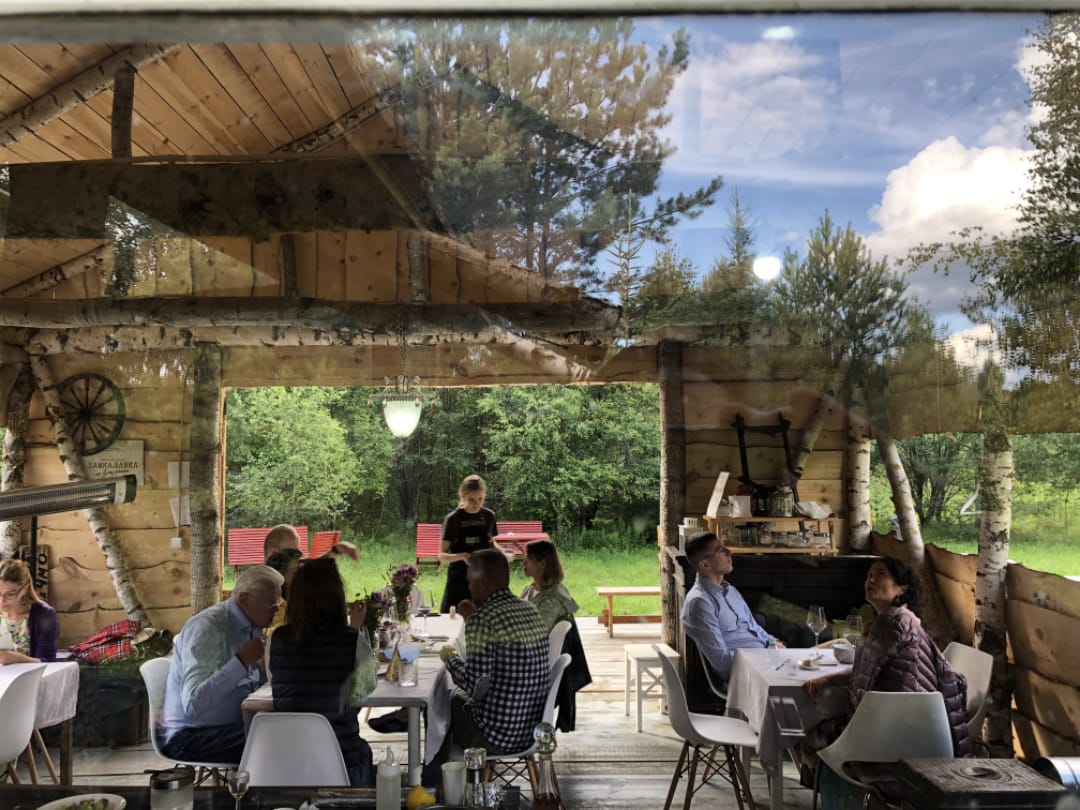
The ‘Knyazhevo. Food and Farm’ project gained fame not only in their area, but also beyond its borders - among the people of Pereslavl-Zalessky, summer residents from the surrounding villages and many their guests, and tourists learning about the local gastro-miracle from Tripadvisor.
Eco-tourism Expert asked Olga Strizhibikova to tell us what it was like when the people living in the capital move to a remote village with children to do organic farming and run their restaurant business in the forest.
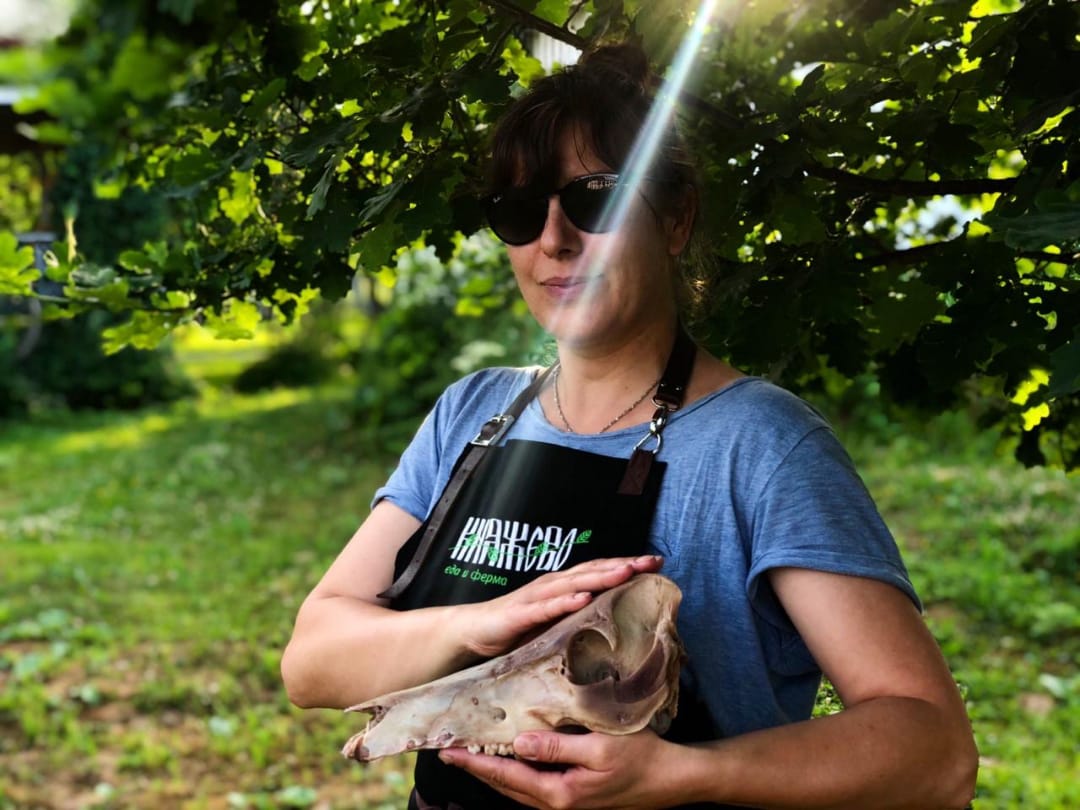
- Let's start the talk from the beginning - why do you, two university and purely urban persons, have a bent for farming?
- In fact, we have not yet completely moved from Moscow to the village, although we stay most of our time here. But the city has not ‘let us leave’ yet for some reasons - the eldest daughter needs to finish school in Moscow, she has one more year to study. And the second reason, and most important one, is our desire to build a sustainable business - independent of Moscow, here in the village. And we have set a goal - to do this within one year as our youngest daughter will go to school next year and this will be the school in Pereslavl.
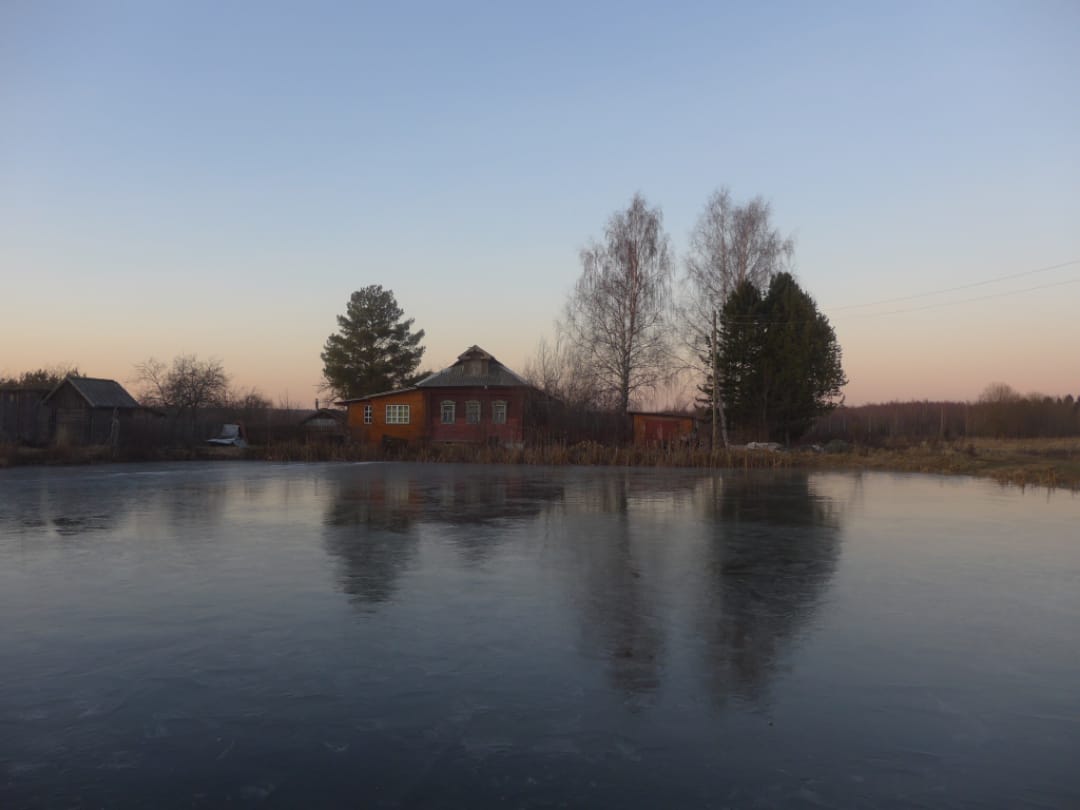
The desire to live in a village came to us long ago. The husband’s parents bought a house in Knyazhevo in the late 1970s and my husband and his sisters lived here in their childhood. When we became parents (we have four kids), we lived more time in the village, built a second house and bought a neighbouring plot with another house where we live now. And the husband’s younger sister and her children live in the old parents’ house. So, we have three houses surrounded by one fence.
- Still, was it originally an environmental idea to farm and live in nature?
- During the first years, we did not do anything, just enjoyed the time and relieved our feelings, trimmed the lawns only. It was so until the nurse looking after our children who came with us to the village for the summer asked us to make the first bed in the garden for her to grow the greens. The next year, another bed appeared - to grow cucumbers, then she planted potatoes, later on a couple of ducks appeared (to clean the pond) and ... we got involved.
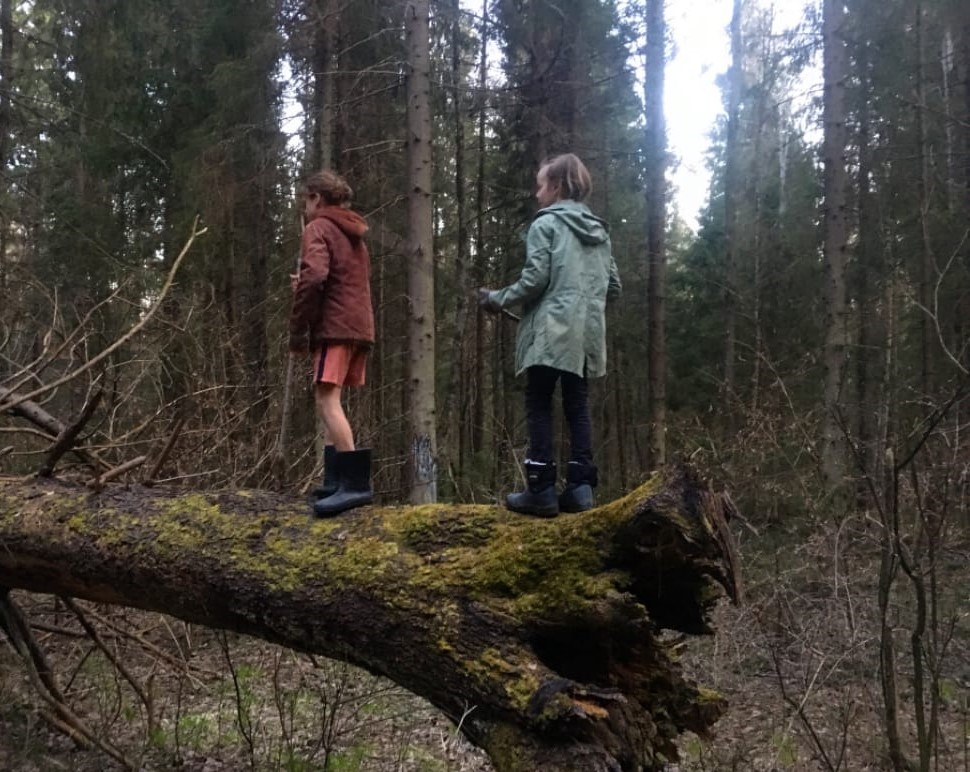
- One can graduate from the Moscow State University and the Russian State Humanitarian University and set up a company to sell farm-grown products in the Patriarshiye Ponds area and Tsvetnoy Bulvar - that makes sense. But living in the village all the time, gardening, raising cattle, and handling a cow is another thing...
- We have three cows now and several calves, as well as sheep, goats, piglets and domestic fowl. We did not have any clear plan for the development of our farm and vegetable garden. We started some kind of planning just a couple of years ago when we finally made our decision to move to the village for good and all and visit Moscow from time to time.
- The idea of a restaurant in the forest is quite romantic. Knyazhevo is a very beautiful place, just like in a fairy tale ‘Geese-Swans’ - you run and you see an oven all of a sudden where cakes are being baked. I heard of your restaurant thanks to the word-of-mouth marketing, from the village neighbours, and, honestly, I couldn’t believe my ears. How did this happen?
- Seven years ago, I started working on the ‘Mark and Lev’ project in the Tula Region; I came up with my idea of a restaurant from scratch, picked my team, worked out the menu, etc. I have worked on the project for three years. When the project was launched, my youngest daughter was born, and I worked for three years without enjoying the maternity leave - at first, I went to the Tula Region being pregnant, then with my baby. The elder three children stayed at home with their nanny. Then I got tired a little and we peacefully parted with our investor. I had some rest - as far as it was possible as I had four children and a farm - I ‘recharged batteries’ and gained new experience and impressions. And a year later, I wanted to make a project in Pereslavl.
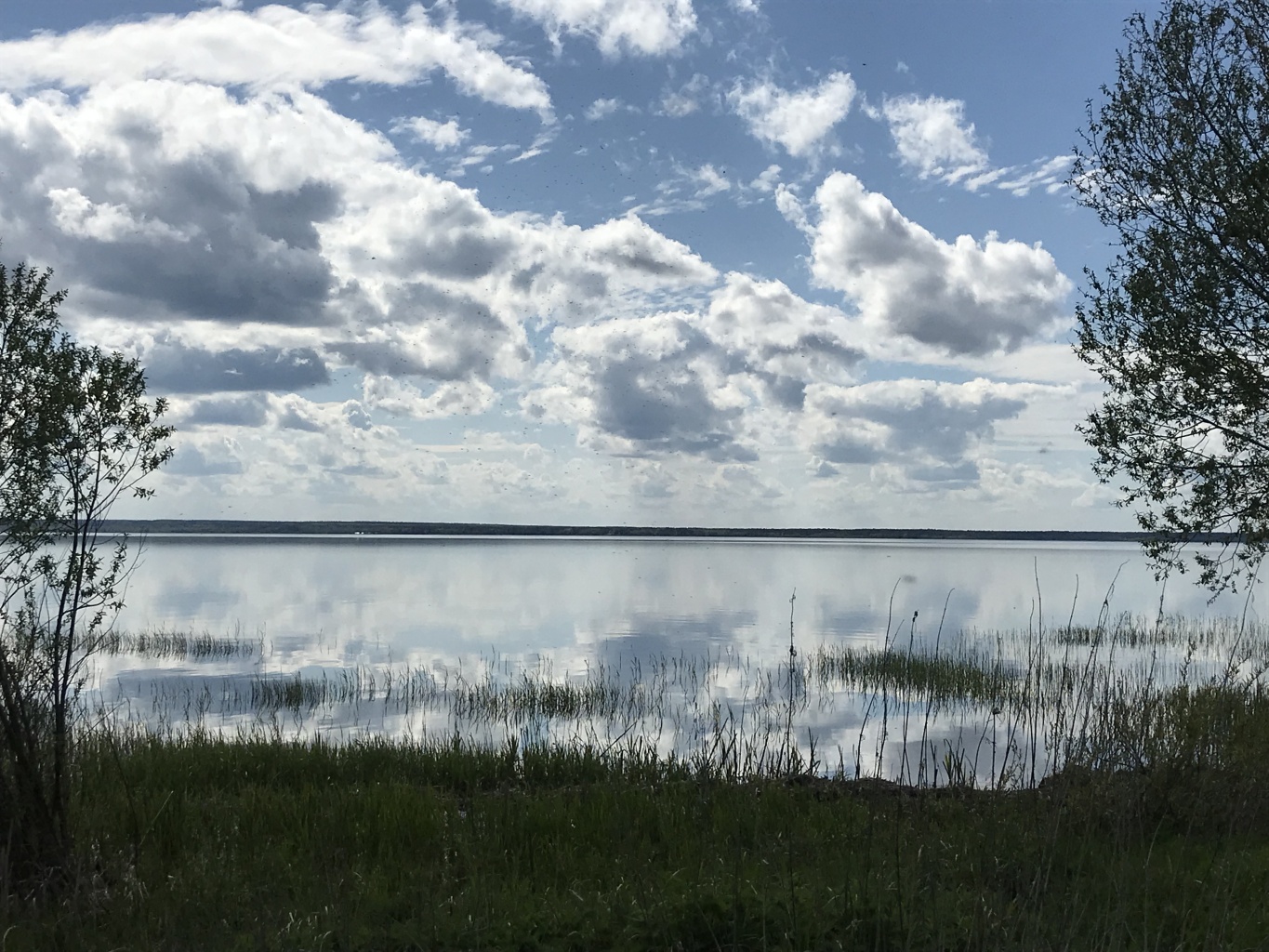
We looked for premises, the concept was already clear in my mind, it would be locavore cuisine - local food only, from local products grown or produced nearby within the local community. When I began to make calculations I realized that I would have to work a lot, but the outcome could be very small. My husband I discussed the project and decided that it would be better to open a small family restaurant in our village; we have our own farm and garden, our own land, the place is surrounded by forest - why should we look for anything else? It will be a weakend restaurant open one or two days a week, but we will get a great pleasure from our work. You can’t earn all the money - there's always more fish in the sea - and work should bring joy! Two months later, we had our first guests. I am absolutely sure that this was the right decision!
- You have the gift of bringing people together. The place around your restaurant is the venue for ‘Happy People. Pereslavl.’ festivals held with the participation of local craftsmen, farmers, food stores and musicians, and everyone who does something fascinating and attractive in the area ...
- The idea about the ‘Happy People. Pereslavl.’ project uniting local creative people came into our minds spontaneously, too. The more time we spent in the village, the more we got to know about some interesting people in the neighbourhood like farmers, craftsmen, artists, most of them also changed the life in Moscow for the life in Pereslavl and its environs.
One evening before a holiday, a Frenchman, an Englishman and a Swiss sat on a bench in the forest and discussed their problems speaking Russian. And our eldest daughter Varya told that this can be in our village only! This case best reveals the aim of the project - to bring together all active people so that they can get acquainted with each other and get to know who can do what and what each can offer his or her neighbours. After all, we did not know that the guys make quality furniture in the nearest village, the Swiss makes excellent honey in the other village, wonderful German ladies set up a camping in the third village, and an Englishman grows peonies in the village two kilometers from us... In the nearby Kriushkin, Maya opened a pottery workshop, and her husband, an Englishman, teaches English via Skype. And in Nikitskaya Sloboda, someone started a snail farm. In the Gorodishche village, a young family bakes Pereslavl gingerbreads. In the Myasishchevo village, Dmitry Durov has his famous farm with a cheese factory, and on the opposite shore of the lake, there lives Maria Koval who runs her cheese factory. Next to Durov, Ibrahim from Cuba produces willow herb tea (Ivan-tea) and exports it to the United States. In Rushinovo, bread is baked in a Russian oven, and next to it, there is a psaltery (gusli) workshop. Frenchman Frederick and his wife built a workshop to bake eclairs and all kinds of pastry. Anton opened a small production of surf boards in Pereslavl. And the other Anton makes cutting boards. Alex in Gorki breeds the local Romanovsk sheep. It seems that some time ago, there was nobody here, but it turned out that many talented people live in our region who do their job with heart and hand. And we organized a fair of folk crafts, invited musicians and enjoyed round dancing. There were many guests who could buy beautiful linen clothes from local ‘couturiers’, tablecloths and scarves, fbeautiful ceramic ware by Pereslavl lady artists. As well as cheeses and sausages made by our farmers, liquors and moonshine, honey and herbs ...
Now the situation is not good for holidays and fairs, but people are still together and they discuss their problems, help each other. These are not commercial relations at all, and I would like to extend these relations to the whole country.
- Your children are actively involved in the project, help to cook and serve food at the restaurant. Was it originally planned as a family business?
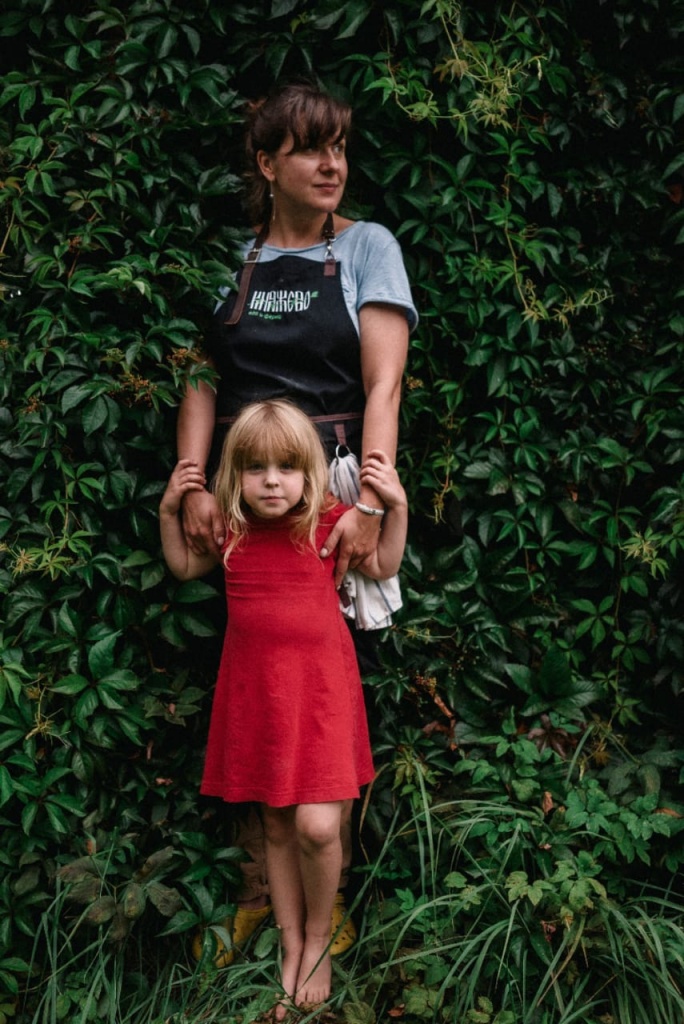
- When we just started to study the possible setting up of a restaurant, the children told about their desire to help us. I offered them not just to render us one-time help but a permanent work with a salary and responsibility. I work with my older children - Varya helps in the hall and keeps accounts, the middle son grills the meat, and the youngest son is my ‘right-hand man’ in making purchases and so on. And to my joy, it happened so that in their 10, 12 and 14 years of age at that time, our children understood the value of money earned, began to be more careful about food, and our relationship has somehow strengthened. Although, some conflicts do happen when you work together. But I try to remind them that in the restaurant’s kitchen I’m not their mother, I am their boss and they must obey me, but at home, they can complain to me (their mother) against their boss.
- What is the most difficult in your rural life and work and what is the most pleasant? Are there any doubts, regrets, or does it bring you only joy?
- The most difficult is our responsibility to the earth, animals, our workers. Yes, it makes me tired sometimes. However, when you see these sunsets and sunrises, the starry sky at night, you forget about everything, and there remains only the satisfaction that your work is meaningful and not useless. That’s what I feel.
- How did you adapt during the period of the epidemic and quarantine?
- We closed the restaurant under lockdown. But we delivered the products from our farm and farms of other members of the ‘Happy People’ group to Pereslavl and its environs, as well as to Moscow. I cook food in a Russian oven against orders.
And from the middle of May, we opened a non-contact bar in a house on the tree - it’s called ‘On the Tree’. Once, we built a house on the tree for our children in the forest that they have not used for a long time. We decided to use it and open a bar there - completely safe in quarantine - in our wild forest, on the tree. The visitors (from one to six persons) make an order for drinks and snacks, pay in advance and get a ‘secret’ plan for the location of the ‘bar on the tree’ where there is nobody, and food and drinks made from the products of our farm already wait for them. The menu has two options to choose from - ‘Moonshine, forest and farm’ (home-made moonshine, pure and made using forest and field herbs, and some snacks) and ‘Wine, forest and farm’ (a bottle of red wine, using qvevri technology, and six appetizers). And there has never been a single day without guests. I like the idea of a non-contact bar, and after the reopening of the restaurant the bar continues its work.
- Has your restaurant reopened recently?
- Yes, we reopened, but not at full capacity, to maintain social distance among our guests, we will serve no more than two tables at a time. Before the lockdown, we asked our guests to make preliminary reservations, so it will not be so difficult for me to organize this. You need to understand that both the restaurant and the bar ‘On the tree’ give people the main thing - the experience! And also a delicious food made from fresh ingredients.
- Your restaurant ranks third among the best restaurants of Pereslavl in Tripadvisor. What special food do you offer?
- We have a Russian oven where bread is baked, carrots and pumpkins stewed for our ‘Russian hummus’, potatoes and Yaroslavl veal are baked. We make ham using the pork we produce, as well as white cheese (bryndza) in barrels using the milk of our Yaroslavl breed cows (the oldest Russian dairy cows); the Knyazhevo cheese aged for more than a year and turned into powder for pasta - and generally for any dish - is used instead of parmesan. Now we deliver all these products to Moscow.
Salad with salted butter mushrooms (they are from the nearest forest and picked up 50 metres away from our restaurant), soaked Antonovka apples, garlic marinated in apple juice, dried porcini mushrooms soup, apple cider souffle, ‘antiviral’ liqueurs, our new desserts like Russian panacotta made from milk baked in a furnace with a chokeberry pastille, mixed herbs-and-flowers jelly...
- How did your presence influence the life in the village? How do your villagers feel about your project?
- It’s too early to speak about global changes, not so much time has passed. But two of our friends bought houses in Knyazhevo. Our local neighbour grows vegetables for us and provides our restaurant with her food products. We cleaned the pond, and then everyone began to return money to us, whoever can whatever sum. Well, the fact that two years ago, my husband (a Moscowite!) was unanimously elected the village headman speaks for itself.
